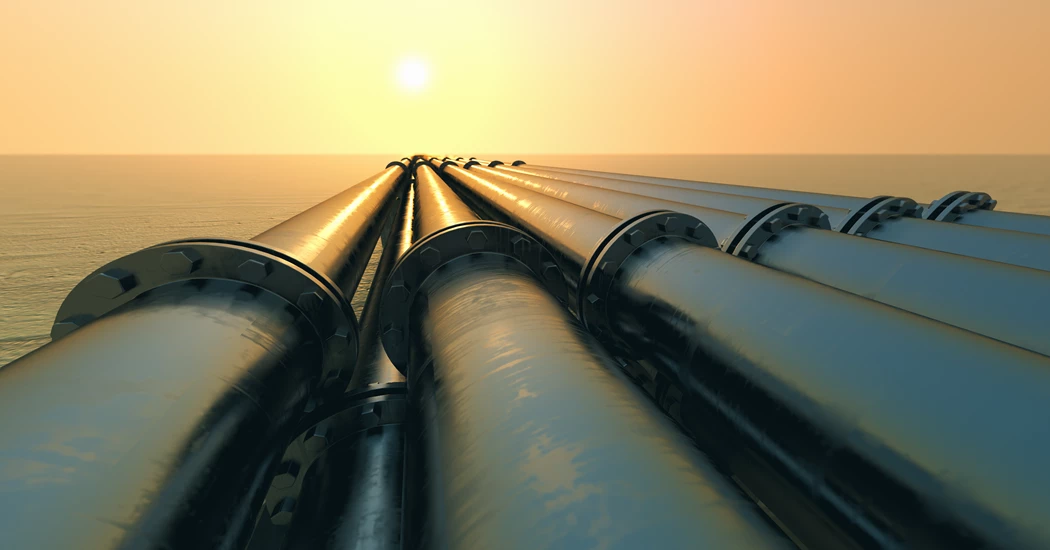Wintershall Dea and Fluxys jointly investigate options for transport of CO2
Wintershall Dea and Fluxys are jointly cooperating on a cross-border CO2 pipeline network connecting southern Germany and Belgium.
The two companies signed a cooperation agreement to this effect. CO2 emissions from industrial clusters in southern Germany are to be transported to the German-Belgian border via the planned pipeline network. From there, the CO2 will be transported via the CO2 network in Belgium developed by Fluxys to Zeebrugge on the Belgian North Sea coast, and subsequently to offshore CCS storage locations in the North Sea where Wintershall Dea is involved.
Fluxys, a transmission system operator headquartered in Belgium, is constructing a CO2 hub in Zeebrugge as a collection point for the onward transport of industrial emissions to secure storage sites under the seabed of the North Sea. Wintershall Dea is also planning a CO2 hub – called CO2nnectNow – in Wilhelmshaven on the German North Sea coast.
As part of their cooperation, the two companies are also assessing to jointly develop an offshore transport system, starting from Zeebrugge and Wilhelmshaven, to CO2 storage sites in the North Sea.
“With Fluxys, we have a strong partner to advance the expansion of the CO2 transport network and thereby create the necessary infrastructure for the capture and storage of CO2 emissions from industry,” says Hugo Dijkgraaf, Wintershall Dea’s Chief Technology Officer and Member of its Executive Board. “In northern Germany, we are already well positioned through our foreseen CO2 hub in Wilhelmshaven. Through our cooperation with Fluxys, we now also want to offer opportunities for the decarbonisation of industrial sites in southern Germany.”
“We are delighted to cooperate with Wintershall Dea to accelerate the decarbonisation of industry in Southern Germany and beyond. The initiative dovetails perfectly with Fluxys’ strategy to be the essential partner for speeding up the energy transition” says Pascal De Buck, CEO of Fluxys Belgium. “One of our key focus areas is to develop open access CO2 infrastructure to accommodate the carbon capture and storage chain. The CCS chain is essential for industry to decarbonise while maintaining economic activity and employment. Our ambition is to provide the market the capacity required to transport 30 million tonnes of CO2 by 2030.”
Although there are currently still legal hurdles to transporting CO2 to storage sites outside Germany, German policymakers have now come to recognise the potential of CCS. In an evaluation report on the Carbon Dioxide Storage Act, Germany’s Federal Ministry for Economic Affairs and Climate Action (BMWK) recently noted that the country would have to safely store up to 73 million tonnes of CO2 each year under the seabed if it is to achieve net zero by 2045.
KEEPING THE ENERGY INDUSTRY CONNECTED
Subscribe to our newsletter and get the best of Energy Connects directly to your inbox each week.
By subscribing, you agree to the processing of your personal data by dmg events as described in the Privacy Policy.
More renewables news

GE Vernova Expects More Trouble for Struggling Offshore Wind Industry

GE Vernova to Power City-Sized Data Centers With Gas as AI Demand Soars

Longi Delays Solar Module Plant in China as Sector Struggles

Australia Picks BP, Neoen Projects in Biggest Renewables Tender

SSE Plans £22 Billion Investment to Bolster Scotland’s Grid

A Booming and Coal-Heavy Steel Sector Risks India’s Green Goals

bp and JERA join forces to create global offshore wind joint venture

Blackstone’s Data-Center Ambitions School a City on AI Power Strains

Chevron Is Cutting Low-Carbon Spending by 25% Amid Belt Tightening
















